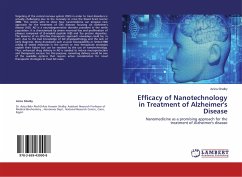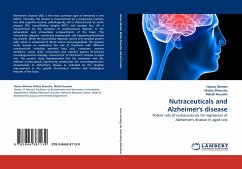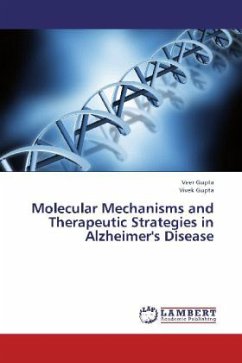Targeting of the central nervous system (CNS) in order to treat disorders is actually challenging due to the necessity to cross the blood brain barrier (BBB). This review aims to show how nanomedicine can propose new approach for the treatment of CNS diseases focusing on Alzheimer's disease (AD). AD is a neurodegenerative disorder prevalent in the senile population. It is characterized by severe neuronal loss and proliferation of plaques composed of beta-amyloid peptide (Abeta) and Tau protein deposites. The absence of an effective therapeutic approach nowadays could be, in part, due to the bad knowledge of AD physiopathology and the lack of early diagnosis. Many drawbacks such as poor bioavailability or limited BBB arising of tested molecules in the current or new therapeutic strategies explain their failure but can be resolved by the use of nanotechnology. Thus, enhanced drug delivery in AD is needed to induce neuroprotection and therapeutic success. For this purpose, nanodrug delivery could be one of the available options that require active consideration for novel therapeutic strategies to treat AD cases.
Bitte wählen Sie Ihr Anliegen aus.
Rechnungen
Retourenschein anfordern
Bestellstatus
Storno








